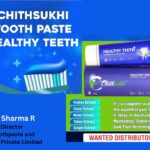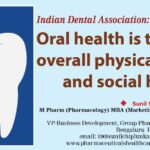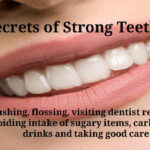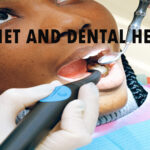Sudden Tooth sensitivity is a common dental problem affecting up to 57 % of adult population. People who suffer from tooth sensitivity experience a short, sudden pain or discomfort in their teeth as a response to certain stimuli such as hot, cold, sweet or sour foods and beverages.
Tooth sensitivity is more common in people between 20 and 50 years old. The prevalence of sensitivity is slightly higher among women with canines and premolars are most commonly involved. People who suffer from tooth sensitivity experience a short, sudden pain or discomfort in their teeth as a response to certain stimuli such as hot, cold, sweet or sour foods and beverages. They avoid their favorite foods and drinks such as hot coffee, ice cold soda, acidic fruits as well as brushing their teeth. Tooth sensitivity negatively impacts on individual’s quality of life.
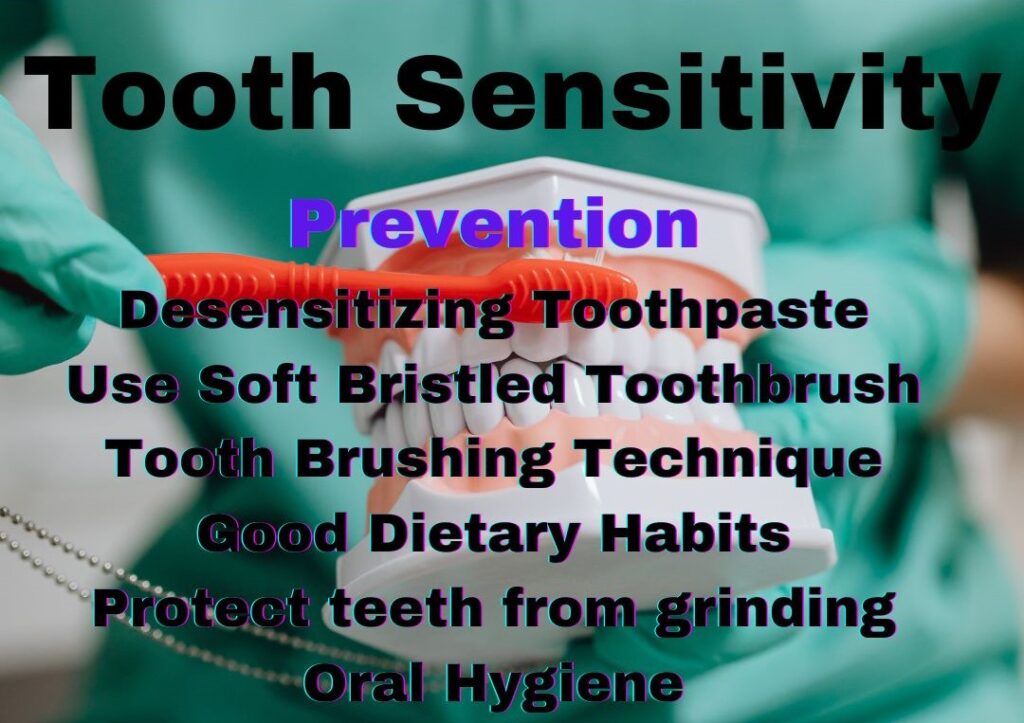

Causes of Tooth Sensitivity:
Tooth sensitivity occurs when dentin is exposed due to loss of enamel or cementum and gum recession. Enamel can be lost as a result of aggressive tooth brushing, frequent consumption of highly acidic foods and beverages, excessive teeth grinding due to stress or using high abrasive toothpaste. Gum recession may occur as a result of hard brushing and gum disease. Tooth sensitivity can also occur due to dental procedures following teeth cleaning, root planning, tooth bleaching, crown placement and tooth filling. Sensitivity caused by dental procedures is temporary and usually disappears in 4 to 6 weeks.
Prevention of Tooth Sensitivity:
1.Use a desensitizing toothpaste: Desensitizing toothpaste is the first line therapy for sensitive teeth. There are different desensitizing toothpastes available in the market with different composition such as potassium nitrate, strontium chloride, hydroxyapatite, pro-arginine, bioactive glass toothpaste etc. Research studies have shown that bioactive glass toothpaste provides long lasting relief from sensitivity and are highly resistant to acid challenge. Brushing twice daily with desensitizing toothpaste reduces pain in sensitive teeth.
2.Use a Soft Bristled Toothbrush: Brushing with a hard bristled toothbrush may cause gums recession. Use a sensitive toothbrush which contains soft or extra bristles and designed to be gentle on sensitive teeth and gums. Replace toothbrush every three or four months or sooner if the bristles are frayed.
3.Tooth Brushing Technique: Brush your teeth with a proper tooth brushing technique and don’t brush horizontally that exposes tooth root. Always brush gently to prevent enamel loss. Brushing your teeth incorrectly, harshly and using too much pressure or force can contribute to gum recession and enamel loss.
4.Develop a Good Dietary Habits: Limit acidic foods and beverages that trigger pain in sensitive teeth. Avoid eating or drinking highly acidic foods and beverages such as oranges, soda, pickles, lemon, soft drinks, sports drink, wine etc. Brushing too soon after consuming acidic food or beverage can also lead to enamel erosion.
5.Use mouth guard for Teeth Grinding: Mouth guards are used to protect from grinding or clenching teeth while sleeping. If you clench your teeth or diagnosed with teeth grinding, make sure you protect your teeth with mouth guard. It is very effective way to control teeth grinding.
6.Maintain good oral hygiene: Good oral hygiene is the best defense against most oral health problems including tooth sensitivity. Poor oral hygiene can lead gum disease or recession which, in turn causes sensitivity. Brush teeth twice daily, floss once a day, rinse mouth daily and visit your dentist every six months once for regular dental check–up.


Dr.Kamala D.N.
Medical Advisor (Oral Care)
Group Pharmaceuticals Limited, Bengaluru-560055



